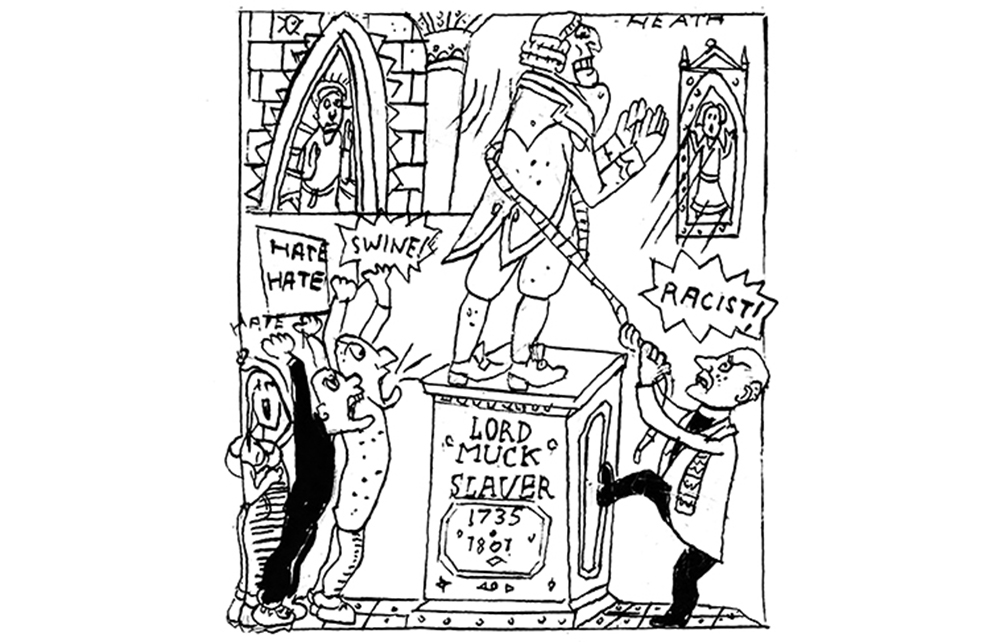Nigel Biggar has narrated this article for you to listen to.
Kemi Badenoch is right to say that Britain is not a racist country. The data simply does not support the claim that black and ethnic minority (BME) people in the UK are generally disadvantaged because of the racial prejudice of white Britons – that ‘systemic racism’ is the cause of the problem. It also suggests that some ethnic minorities tend to perform better than others because of internal cultural factors – not least, strong families and high educational aspirations. By the same token, the cause of relative disadvantage often lies in culture, not racism.
People who really cared to correct unjust social disadvantages would be eager to understand the causes
In Beyond Grievance: What the Left Gets Wrong About Ethnic Minorities, Rakib Ehsan writes: ‘Family dynamics and internal cultural attitudes can have a very real impact on the life trajectory of people living in Britain’s competitive society.’
So why, in defiance of the empirical data, has the Labour party given itself over to the brainless importation of radical identity politics from the US? This holds, as a matter of political dogma, that we may speak of BME people as if they are a single homogenous body, united in their common disadvantage, which is simply attributable to a systemic racism rooted in every white person’s ‘privilege’. Why cling to this narrative, when the evidence says you shouldn’t?
People who really cared to correct unjust economic and social disadvantages would be eager to understand the causes correctly, since accurate diagnosis is requisite for effective remedy. So, when presented with data that their wonted diagnosis – say, systemic racism – simply doesn’t stand up empirically, they would react with keen curiosity, even if with scepticism. That’s because what matters above all else to them is solving the real problem.

Yet that is not how the new progressives react. Over the past six years, I have presented evidence that Britain’s alleged systemic racism cannot be made to derive from a colonial history epitomised by slavery and the dehumanising racism that justified it – not least, since the British Empire devoted the second half of its life to anti-slavery on the basis of fundamental human equality. I have been met not with sceptical curiosity or thoughtful criticism, but with spitting abuse and the fist of repression. My antagonists never get as far as disagreeing, since they are determined not to listen in the first place. But if they really were concerned about the world’s victims, they would open their ears, perchance to learn, improve, and become more effective.
What do they really care about? One answer, according to Ehsan, is money: ‘The financial health of bad-faith actors ultimately rests on the peddling of fundamentally warped interpretations of British society and its institutions.’ And then of course there are jobs and influence at stake, all manner of ‘anti-racist’ political careers having been built upon carefully fashioned personas which attract social status and power.
But there’s more to it than that. It is notable that members of this ideological group are determined to think the very worst of their country. It is important to them that Britain is, and remains, as Ehsan puts it, a ‘hellish island of rampant institutional racism’. They don’t need to believe this. Indeed, the hard evidence says they shouldn’t. But they plough ahead regardless. Why? What’s going on here psychologically, even spiritually?
One plausible candidate is the operation of a degenerate Christian sensibility. For Christians, the paradoxical mark of the genuinely righteous person is a profound awareness of their own unrighteousness. The saint is distinguished as the one who knows more deeply than others just what a sinner he really is. There is considerable virtue in this, of course, since it tempers self-righteousness with compassion for fellow sinners, forbidding the righteous to cast the unrighteous beyond the human pale.
Yet, like all virtue, it is vulnerable to vice. For it can degenerate from genuine humility into a perverse bid for supreme self-righteousness, which exaggerates one’s sins and broadcasts the display of repentance: holier-than-thou because more-sinful-than-thou. The Jesuit-educated French philosopher, Pascal Bruckner, captured this when writing of contemporary, post-imperial Europe in the Tyranny of Guilt:
This is the paternalism of the guilty conscience: seeing ourselves as the kings of infamy is still a way of staying on the crest of history. Since Freud we know that masochism is only a reversed sadism, a passion for domination turned against oneself. Europe is still messianic in a minor key… Barbarity is Europe’s great pride, which it acknowledges only in itself; it denies that others are barbarous, finding attenuating circumstances for them (which is a way of denying them all responsibility).
There is a self-obsessive quality about this. While the rhetoric claims the mantle of the oppressed, the action ignores them:
[By] erecting lack of love for oneself into a leading principle, we lie to ourselves about ourselves and close ourselves to others … In Western self-hatred, the Other has no place. It is a narcissistic relationship in which the African, the Indian, and Arab are brought in as extras.
And so it was in the December 2015 Rhodes Must Fall agitation in Oxford. The protests involved several hundred students, many of these overseas postgraduates privileged with scholarships to study at one of the world’s most prestigious universities, who were clamouring for the downfall of an obscure statue of a British imperialist who had been lying in his grave for well over a century. Some were even Rhodes scholars, cheerfully biting the hand that was feeding them.
Meanwhile, back in the home of RMF’s student leader, Ntokozo Qwabe, Jacob Zuma and the ANC were busy looting the state, driving South Africa to the verge of collapse and exposing its people to destitution. About that real-time political scandal and looming human crisis, what did Oxford’s student Social Justice Warriors have to say? Nothing at all.
Nigel Biggar is professor emeritus of moral theology at Oxford University.






Comments